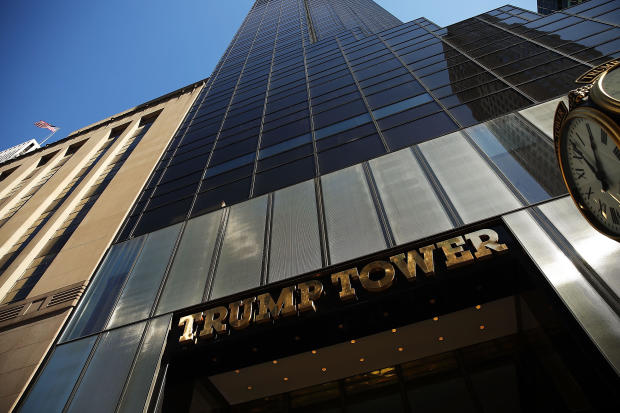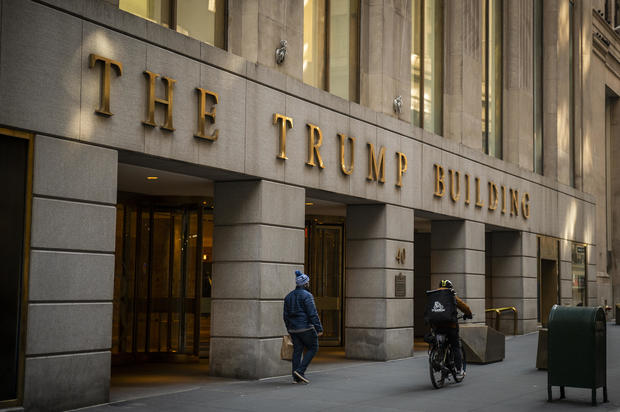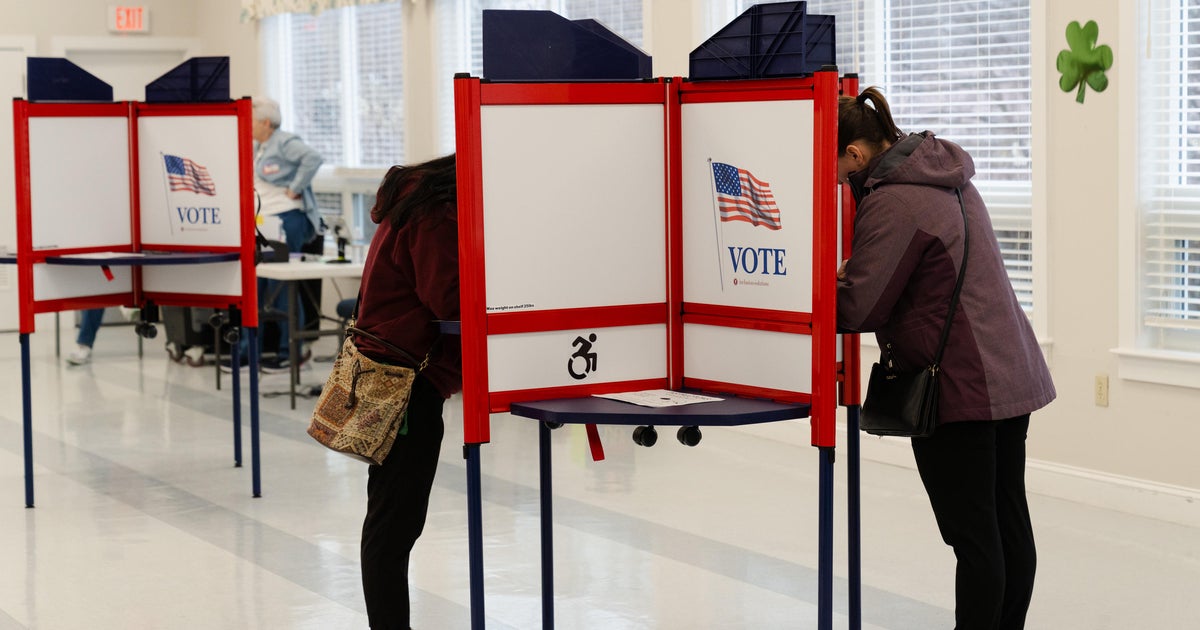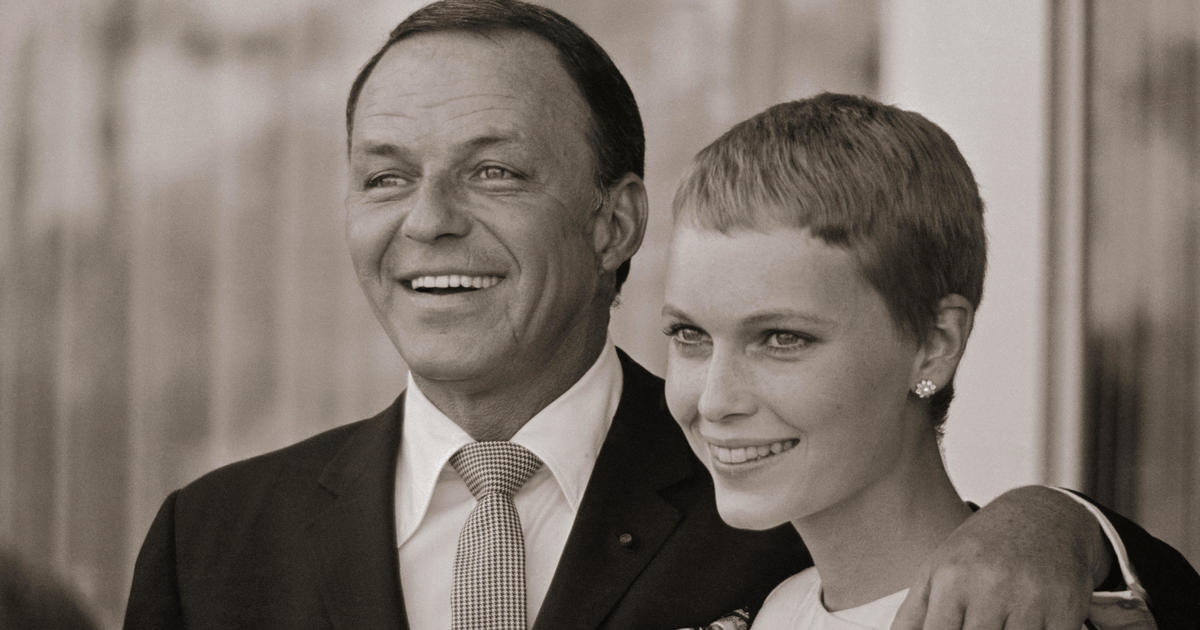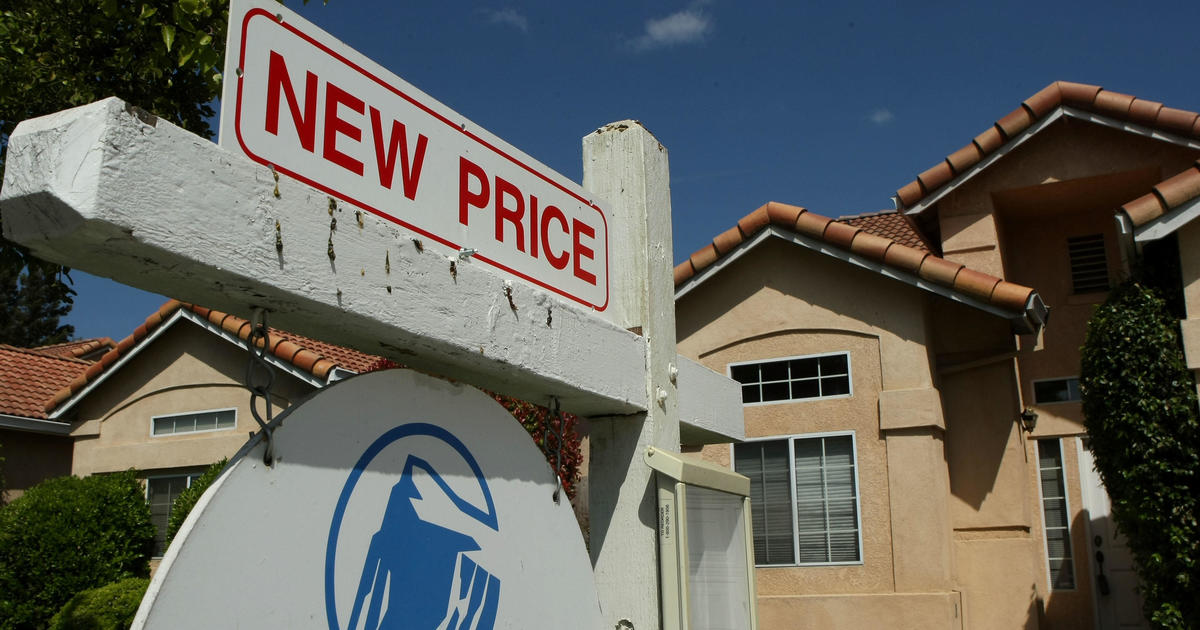4 Trump buildings in NYC, part of DA's probe, also grapple with slumping profits
Donald Trump's premier New York City real estate holdings — once the foundation of his fortune and fame — have increasingly become a problem for the former president.
Part of the reason is COVID-19, which has taken a toll on many landlords. Yet the hit to Trump's New York real estate operations is harder than the rest of the industry has experienced, and it comes after years of financial underperformance by the Trump Organization properties in some of the city's swankiest neighborhoods.
Indeed, last year marked the fifth year in a row in which the four most prominent Trump-owned buildings in Manhattan, including the Fifth Avenue Trump Tower made famous by "The Apprentice" TV show, missed lenders' earnings expectations, according to a CBS MoneyWatch review of publicly available documents.
COVID-19 has made the finances of the four buildings deteriorate further. As of January, three of the four Manhattan buildings had been flagged by mortgage-payment processors because of their worsening financial shape. That compares to one in four commercial loans industrywide that have been put on similar watch lists.
Commercial mortgages like the ones on Trump's buildings are bundled by bankers into investment vehicles called commercial mortgage-backed securities. The CMBS are then sold to pension funds, mutual funds and other big investors who receive a bond-like interest payout that's based on the income generated by the properties.
The four Trump properties have never met their CMBS income targets, the CBS MoneyWatch review found. In addition, Wells Fargo and other banks have told investors who have funded Trump's loans that an income slump due in part to the "COVID-19 global pandemic" means the buildings might not generate enough cash to cover their mortgage payments, according to banker notes to investors reviewed by CBS MoneyWatch. "The loan is being monitored," said a note to investors in one CMBS deal tied to a Trump property from a unit of PNC Bank that services commercial mortgages.
Trump Tower falls short
Whatever damage COVID-19 has doled out to Trump, it's only the latest problem for the four Manhattan skyscrapers owned and operated by the former president and his family company. The properties have also been plagued by years of rising costs, departing tenants and disappointing bottom lines.
In 2012, for instance, bankers underwriting a loan on Trump Tower predicted the 60-story building would earn slightly more than $20 million a year. Nine years later, Trump Tower has never once hit that mark. Profits at Trump's marquee property slumped to $13 million in 2019, although its sinking bottom line appears to have rebounded slightly last year, reaching nearly $12 million in the first nine months of 2020 (the latest publicly available financials for the building).
"You would expect buildings to meet [underwriters' projected profits] in the first year," said Steve Jellinek, who is the head of CMBS research of credit rating firm DRBS Morningstar.
After that, Jellinek said, investors in commercial mortgage-backed securities would expect income for the buildings to grow each year, unless there was an exit of a major tenant, which has not been the case with Trump's four buildings. Jellinek declined to comment directly on Trump's loans or why the buildings have underperformed.
Trump Tower isn't the Trump Organization's only Manhattan property that's struggling. Kroll Bond Rating Agency in January placed mortgage debt tied to the the Trump International Hotel & Tower overlooking Central Park by Columbus Circle on its list of "Loans of Concern" due to a "deterioration in financial performance."
The pandemic has nearly erased profits at the 45-story hotel-condo tower's commercial spaces, which includes an 18,000 square-foot garage and the namesake restaurant of top French chef Jean-Georges Vongerichten. The property's bottom line from those leases, after interest payments, dropped to $52,325 in the first nine months of last year, down more than 80% from the $273,650 it earned in the first three quarters of 2019, according to filings with the Securities and Exchange Commission. Trump owes nearly $6.5 million on the property, including $270,000 in annual interest.
40 Wall Street on watchlist
Another Trump Organization commercial mortgage that lenders have flagged is for the company's financial district skyscraper, 40 Wall Street. On November 6, three days after the presidential election that Trump lost, Wells Fargo placed a loan tied to 40 Wall Street on its watchlist. Trump's business owes $135 million in debt on the property, which comes due in mid-2025.
The pandemic has spurred the Trump Organization to offer office and retail tenants concessions so they won't try to end their leases early, according to a recent note from Wells Fargo. Still, occupancy rates at 40 Wall Street had dropped to 87% by September, down from 98% when the loans were made in 2015, according to a loan property-detail report from lending data firm Trepp. Rents at the 63-story building were on track to drop by $5 million in 2020, according to a recent financial filing.
At least one other 40 Wall Street tenant is also looking to leave. In January, the Girl Scouts of New York said the nonprofit organization was seeking an early out from its 15-year lease that expires in 2029. The head of the New York chapter, which pays Trump's company nearly $650,000 in annual rent for about 17,500 square feet of office space, called exiting the Trump lease a "very high priority."
A fourth property, Trump Plaza, a 36-story commercial and condo tower on Manhattan's tony Upper East Side, in December was placed on a watchlist by a division of PNC Bank that services commercial real estate loans. The PNC subsidiary said it flagged the building in order to monitor it for "weak performance."
The Trump Organization last May asked PNC for loan relief for Trump Plaza, "citing coronavirus-related hardship," according to a February 2021 report from Kroll Bond Rating Agency. The relief was not granted. The Trump Organization canceled the request in August, according to the Kroll report. No reason was given.
In mid-February, PNC dropped the Trump Plaza loan from its watchlist, though, again, no reason was reported. The building's operating profits, after mortgage payments, had dropped 30% in the first nine months of 2020, to just under $600,000, from the same period a year earlier, according to records.
The Trump Organization did not return multiple requests for comment about its Manhattan portfolio. A spokesperson for Trump referred questions for this article to his company.
Trump's company has not missed an interest payment on any of the four buildings, nor is it in danger of defaulting or losing any of the properties to either foreclosure or a forced sale. In addition, the four properties represent a relatively small slice of the broader Trump family enterprise.
The Trump Organization's overall revenue from the its international collection of buildings, golf courses and hotels fell nearly 40% during the 2020 pandemic year to $278 million, according to a Wall Street Journal report of disclosures made by the company to the Office of Government Ethics. Trump's four New York City buildings brought in just over 11% of that reported revenue.
Prosecutors reviewing documents
Beyond the four buildings' marketplace challenges, their financing could also pose a legal risk for Trump. New York City prosecutors have obtained millions of pages of Trump's tax records and related correspondence as part of an ongoing criminal probe into his financial deals. Sources with knowledge of the investigation tell CBS News that prosecutors are reviewing financial documents involving the four Manhattan buildings. Subpoenas indicate the prosecutors are also scrutinizing at least one other Trump property in suburban Bedford, New York.
The investigation by the Manhattan district attorney's office initially targeted hush-money payments made during the 2016 campaign to adult film star Stormy Daniels by former longtime Trump attorney Michael Cohen. Prosecutors indicated in court filings last year that the probe has since widened to look at possible crimes as wide-ranging as fraud and tax evasion.
What is clear is that the four Manhattan buildings under Trump Organization management have not performed as lenders expected. The drop in profits last year is notable, especially for 40 Wall Street, because office real estate in general has weathered the economic slowdown fairly well, in part because of long-term leases that can lock in deals for years. The default rate of loans tied to office buildings was just 3% as of January, according to debt rating firm Moody's. That's up only slightly from 2.5% in February 2020, before the pandemic started ravaging the economy.
Mixed-use, mixed results
Trump's buildings technically fall into a real estate category called mixed-use, because they are a combination of office and some other type of commercial use, such as retail or hotel space. Default rates in the mixed-use category are considerably higher, at 12.3% nationwide. But Manhattan real estate, where all of Trump's New York City towers are located, has done better than the rest of the nation, with a default rate of just 8.9% for mixed-use buildings in Manhattan. That's up from 7.2% before the pandemic, according to Moody's.
"We have seen new leases signed in Manhattan," observed Kevin Fagan, a commercial real estate analyst at Moody's. Fagan declined to comment specifically about Trump's properties. "It is a wait-and-see situation, but our baseline position is that the coronavirus downturn will not have a meaningful negative impact on the office sector [post-pandemic]."
Trump's company is private, so it doesn't have to disclose financial statements. But all four of the New York City buildings have public debt — commercial real estate loans that were all made by Ladder Capital, a financial firm that has been one of Trump Organization's main lenders in recent years. That debt was then packaged with other property owners' real estate loans and sold off to investors through CMBS. As part of those transactions, as is customary in these deals, the bankers putting together the CMBS deal made projections of what investors could expect the buildings to earn.
The Trump Organization and other borrowers in such deals are also required to make financial disclosures about the buildings, though not as detailed as a public company's filings. What's more, loan servicers like Wells Fargo and PNC, which collect borrowers' payments, are required to tell investors when a property's income has dropped or to flag other situations that may indicate a property is experiencing financial stress.
Those disclosures show that bankers projected that Trump Tower would generate $20 million in net operating income each year when his company's $100 million loan on the property was sold to investors with other commercial mortgages in 2012. The closest Trump Tower came to that was in 2014, when the building reported profits of $17.7 million.
The signature skyscraper's revenue has remained largely flat, rising just 10% over the past decade, or about 1% a year. The biggest problem for Trump Tower appears to be its costs, which were on track as of last September 30 to reach $21 million for all of 2020, from about $12 million annually at the time the loan was sold to investors.
Unlike with Trump's other buildings, there is no public indication from the Trump Organization or its loan servicers that COVID-19 is the source of Trump Tower's jump in expenses or its profit challenges. The $100 million loan on the property comes due in September 2022, according to Trepp.
"The Trump buildings have missed their targets during a time when real estate did very well, so one would expect most properties to outperform their past underwritten income," said John Griffin, a professor of finance at the University of Texas at Austin who has studied the commercial real estate market. "The fact that actual income fell short of underwritten income — not on one loan but several, and by a large percentage and dollar amount — does raise concerns about how the financial health of the buildings was presented at the time of the deals, and how they have performed since.
